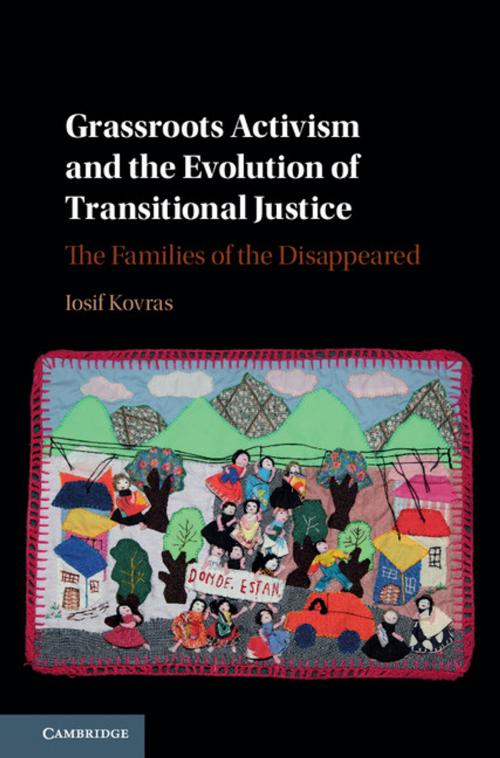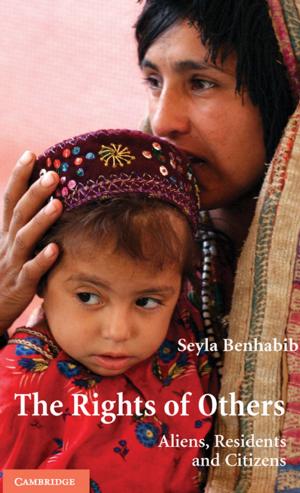Grassroots Activism and the Evolution of Transitional Justice
The Families of the Disappeared
Nonfiction, Reference & Language, Law, International, Social & Cultural Studies, Political Science| Author: | Iosif Kovras | ISBN: | 9781316733141 |
| Publisher: | Cambridge University Press | Publication: | April 19, 2017 |
| Imprint: | Cambridge University Press | Language: | English |
| Author: | Iosif Kovras |
| ISBN: | 9781316733141 |
| Publisher: | Cambridge University Press |
| Publication: | April 19, 2017 |
| Imprint: | Cambridge University Press |
| Language: | English |
The families of the disappeared have long struggled to uncover the truth about their missing relatives. In so doing, their mobilization has shaped central transitional justice norms and institutions, as this ground-breaking work demonstrates. Kovras combines a new global database with the systematic analysis of four challenging case studies - Lebanon, Cyprus, South Africa and Chile - each representative of a different approach to transitional justice. These studies reveal how variations in transitional justice policies addressing the disappeared occur: explaining why victims' groups in some countries are caught in silence, while others bring perpetrators to account. Conceiving of transitional justice as a dynamic process, Kovras traces the different phases of truth recovery in post-transitional societies, giving substance not only to the 'why' but also the 'when' and 'how' of this kind of campaign against impunity. This book is essential reading for all those interested in the development of transitional justice and human rights.
The families of the disappeared have long struggled to uncover the truth about their missing relatives. In so doing, their mobilization has shaped central transitional justice norms and institutions, as this ground-breaking work demonstrates. Kovras combines a new global database with the systematic analysis of four challenging case studies - Lebanon, Cyprus, South Africa and Chile - each representative of a different approach to transitional justice. These studies reveal how variations in transitional justice policies addressing the disappeared occur: explaining why victims' groups in some countries are caught in silence, while others bring perpetrators to account. Conceiving of transitional justice as a dynamic process, Kovras traces the different phases of truth recovery in post-transitional societies, giving substance not only to the 'why' but also the 'when' and 'how' of this kind of campaign against impunity. This book is essential reading for all those interested in the development of transitional justice and human rights.















